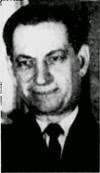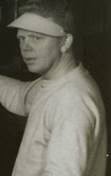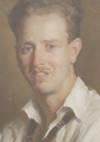As I have been realizing over time, the artists of Adventure magazine are an even more obscure lot than the authors. So I decided to put together an article on them, but realized it was becoming too big. So I broke it into a two part article, with the first part being the top cover artists and the second one covering other notable artists.
The following illustrators together created more than half the covers of Adventure magazine during the time when it was a pulp magazine (1910-1953). The numbers in brackets are the number of covers which they did.
Hubert Rogers (54)
Prolific artist, painted adventure and science fiction covers. Many of his covers featured men in profile.
|
H. C. Murphy (39)
Also illustrated the cover for Dashiell Hammett’s The Maltese Falcon in Black Mask. Many of his covers depicted boats and cowboys.
|
Probably the most successful of Adventure artists. Painted many themes but his most beautiful ones are the very muted American Indian themed covers, in my opinion.
|
||||
Rafael DeSoto (26)
Another prolific artist who spanned the adventure, detective and western genres. Almost all his covers featured people who never directly looked at the reader, for some reason.
|
Colcord Heurlin (25)
Pioneering Alaskan painter of many northwestern covers, also a bush pilot. Instantly recognizable by his pastel color palette in northwestern scenes.
|
Peter Sterne Stevens (22) Did many outstanding cover illustrations for Famous Fantastic Mysteries and other science fiction pulps. Many of his covers feature a man attacking an assailant who is out of the scene.
|
||||
A.L. Ripley (21)
Specialized in pirate covers, seems to have been inspired by Howard Pyle. One of his covers features rats leaving a ship.
|
E. F. Wittmack (19) Painted many covers for the slicks (The Saturday Evening Post, Colliers’, Popular Science among others) and the pulps. All his covers in Adventure were on marine themes.
|
Walter M. Baumhofer (17)
Started his career with Adventure, went on to paint for many magazines (pulps and slicks). Called the King of the Pulps. I really liked his covers featuring a monkey.
|
||||
|
Malvin Singer (16) Illustrated adventure and crime fiction, moved to men’s adventure mags after the pulp era. Many of his covers featured a man shouting.
|
Stockton Mulford (14) Did covers under his name and also under the alias “Ray Dean”. No idea why, it’s one of life’s little mysteries.
|
Dominic Cammerota (11)
Could not find out anything about this artist
|
||||
|
James C. McKell (13)
Illustrated adventure and western pulps. All his covers for Adventure are western themes.
|
Painted the cover for the last pulp issue of Adventure.
|
Arthur Schwieder (11)
Seems to have worked exclusively for Adventure before starting an art school in 1928.
|
||||
|
Could not find out anything about this artist
|
The pre-eminent wildlife artist of the time, responsible for many of the most beautiful late teens animal covers. Also did circus posters for Barnum and Bailey and many other books
|
Maurice Bower (10) Illustrated many covers for the Saturday Evening Post. Almost all of his covers have a man clutching a weapon.
|
||||
William F. Soare (10)
This artist passed away early at the age of 42. He worked across western, adventure, crime and “spicy” pulps.
|
Rockwell Kent (10)
Was the sole artist for the entire time in 1926-27 Adventure tried to become a slick magazine.
|












Excellent article Sai! I presently have 5 paintings that were used as covers for ADVENTURE and I own paintings by 3 of the artists listed above: Baumhofer, Desoto, and Wittmack. Concerning the most successful artist, I agree that Delano certainly qualifies but I'd vote for Rockwell Kent. His illustrations for MOBY DICK are very impressive. I noticed that the Wikipedia article does not mention Rockwell Kent's work for ADVENTURE.
Walker, when I wrote the article, I was thinking Delano was the most successful artist whose career was launched in Adventure. If the Fictionmags index is complete, his first cover illustration was for Adventure in 1925.
Rockwell Kent was already a successful artist when he started doing work for Adventure. I think you may be right in assessing their relative success though.